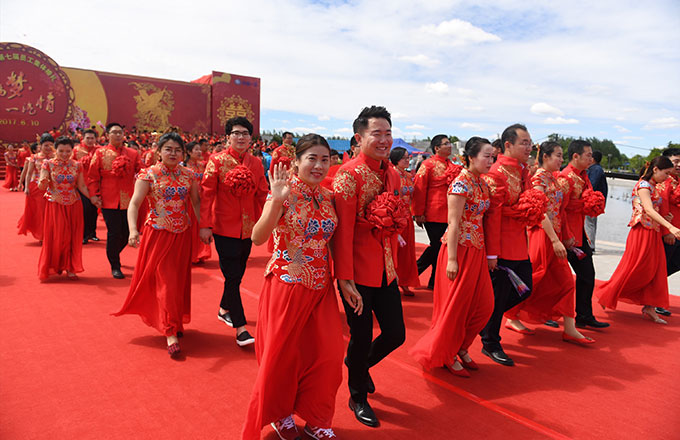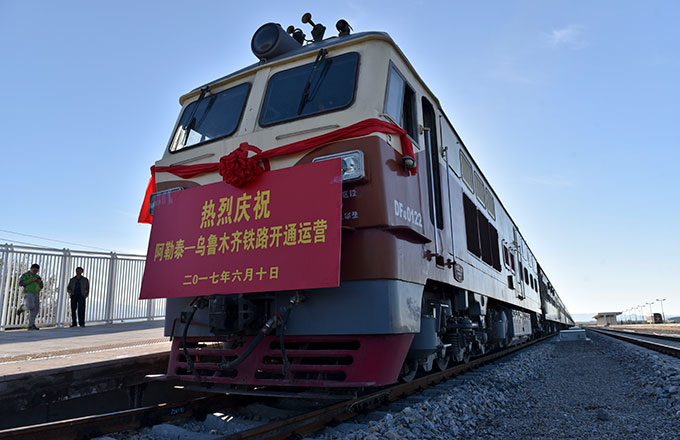Two kinds of comments about China's reform
August 21, 1985
People abroad are making two kinds of comments about China's economic reform. Some commentators maintain that the reform will cause China to abandon socialism, while others hold that it will not. These last are far-sighted. All our reforms have the same aim: to clear away the obstacles to the development of the productive forces. In the past we carried out the new-democratic revolution. After the founding of the People's Republic, we completed agrarian reform and conducted the socialist transformation of agriculture, handicrafts and capitalist industry and commerce, thus establishing the socialist economic base. All this was a great revolution, which lasted for more than three decades. But in the many years following the establishment of the socialist economic base, we failed to work out policies that would create favourable conditions for the development of the productive forces. As a result, they developed slowly, the material and cultural life of the people did not improve rapidly enough, and the country could not free itself from poverty and backwardness. Under these circumstances, in December 1978, at the Third Plenary Session of the Eleventh Central Committee of the Party, we were compelled to decide on a course of reform.
Our general principles are that we should keep to the socialist road, uphold the people's democratic dictatorship, uphold leadership by the Communist Party and uphold Marxism-Leninism and Mao Zedong Thought. These principles have been written into China's Constitution. The problem is how to implement them. Should we follow a policy that will not help us shake off poverty and backwardness, or should we, on the basis of those four principles, choose a better policy that will enable us to rapidly develop the productive forces? Our decision at the Third Plenary Session of the Eleventh Central Committee to carry out reform meant that we were choosing a better policy. Just like our past revolutions, the reform is designed to clear away the obstacles to the development of the productive forces and to lift China out of poverty and backwardness. In this sense, the reform may also be called a revolutionary change.
In a nutshell, our economic reform means invigorating the domestic economy and opening to the outside world. Invigorating the domestic economy means opening domestically, so as to stimulate the initiative of the people throughout the country. As soon as the open policy was implemented in the countryside, the initiative of the 800 million peasants was aroused. The open policy in the cities will likewise stimulate the initiative of enterprises and of all sectors of society. An invigorated domestic economy will help promote socialism without affecting its essence. As for the practice of absorbing foreign funds, it is a supplementary means of developing the productive forces, and we need not worry that it will undermine the socialist system. Of course, the policies of invigorating the economy and opening to the outside may have certain negative effects, and we need to be aware of that. But we can cope with that; it is nothing serious. This is because from the political point of view, our socialist state apparatus can safeguard the socialist system. And from the economic point of view, our socialist economy already has a solid basis in industry, agriculture, commerce and other sectors. That is how we look upon the possible negative effects of our policy.
Our reform is an experiment not only for China but also for the rest of the world. We believe the experiment will succeed. If it does, our experience may be useful to the cause of world socialism and to other developing countries. Of course, we do not mean that other countries should copy our example. Our principle is that we should integrate Marxism with Chinese practice and blaze a path of our own. That is what we call building socialism with Chinese characteristics.
(Excerpt from a talk with President Julius Kambarage Nyerere of the United Republic of Tanzania.)
(From Selected Works of Deng Xiaoping, Volume III <1982-1992>)
- China issues guidelines to develop 'all-for-one' tourism demonstration zones
- Torrential rain triggers disaster in Southwest China
- Harvest time for wheat reapers in Shanxi
- Over 200 couples marry in Changchun group wedding
- Calligraphy tops other icons of Chinese culture, WeChat data shows



















